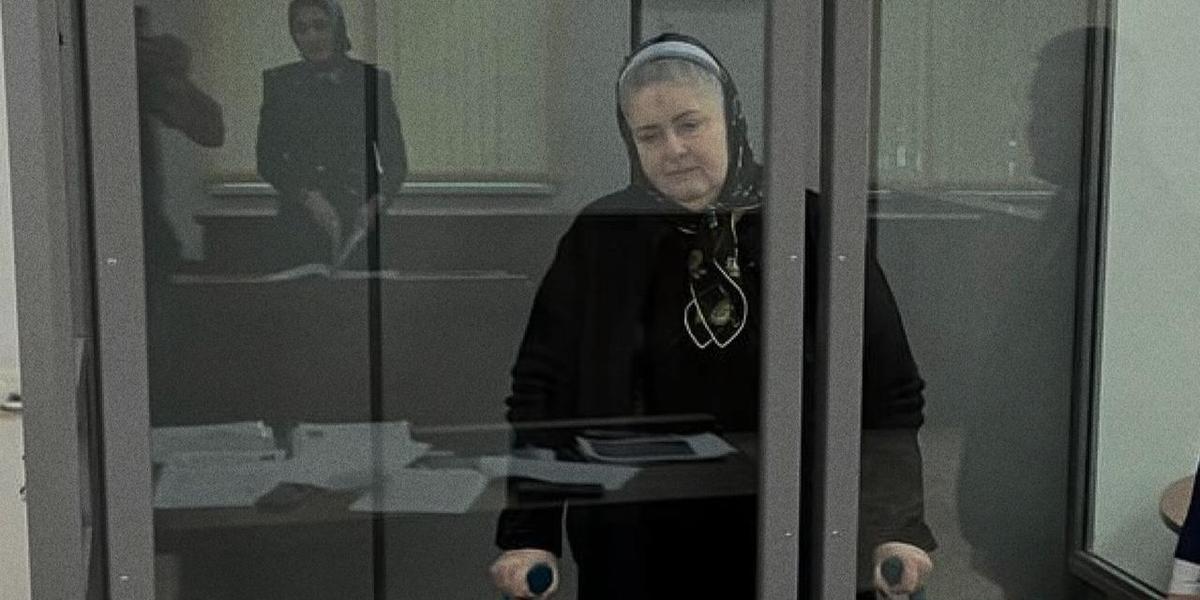
Zarema Musaeva in court. Photo: Crew Against Torture
The Supreme Court in the republic of Chechnya, in the Russian North Caucasus, refused a request on Friday from the legal team of Zarema Musaeva, the jailed mother of three prominent Chechen human rights, for her release from pretrial detention on medical grounds, according to Crew Against Torture, a Russian human rights nonprofit.
Musaeva, 56, is the wife of former Chechen Supreme Court justice Saidi Yangulbaev, who fled Russia in 2022 after being threatened by Ramzan Kadyrov, the head of the republic. Her sons Abubakar, Ibragim and Baisangur Yangulbaev are well-known activists and Kadyrov critics living in exile.
Lawyer Alexander Savin had asked the court to release Musaeva from pretrial detention while the investigation was being concluded so that she could undergo a medical examination and receive appropriate treatment. Musaeva has type-2 diabetes and was hospitalised multiple times in 2024 for various ailments, including issues with walking and worsening eyesight.
“Musaeva cannot in any way obstruct the criminal proceedings due to … her poor state of health and her constant dependence on medication,” Savin said in a statement posted by Crew Against Torture.
The Prosecutor’s Office insisted on keeping Musaeva in pretrial detention until August, however, arguing that she should be kept in custody as she is allegedly prone to attacking law enforcement officers.
Musaeva, who was sentenced to five years in prison in July 2023 after being found guilty of fraud and attacking a police officer, faced fresh charges in November for another alleged attack on a prison guard. She could face an additional five-year prison sentence if convicted.
Last May, the European Court of Human Rights (ECHR) ruled that Russia had violated Musaeva and her family’s rights under the European Convention on Human Rights, and that her arrest had been ordered as a way to intimidate her and her family. However, since the adoption of legislation in June 2022, the Russian government no longer acknowledges or enforces ECHR rulings.
